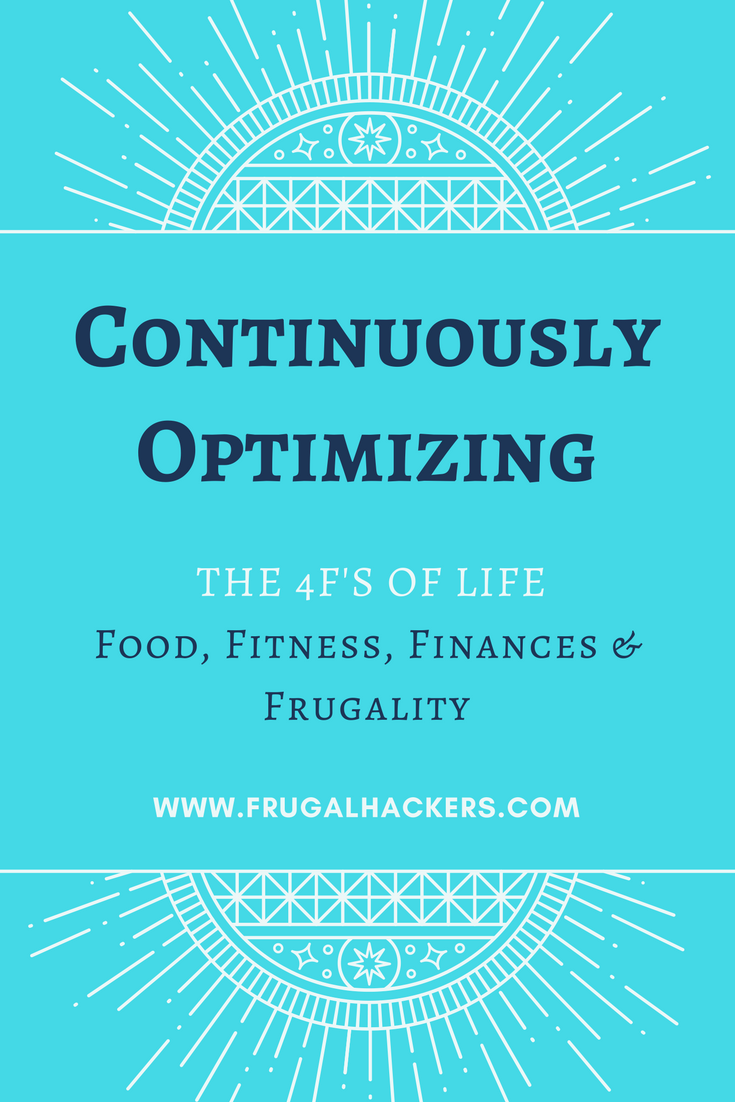This year, 2017, we are on track to saving 70% of our after-tax income. That's 70% of 67% (our overall combined tax rate is ~33%) of our total gross salaries which comes out to a whopping $140k/yr in savings. Any job-based bonuses or raises would be extra. 70% is an insane rate of savings for most people, but with a few frugal hacks, you too can dramatically increase your savings rate, often up to 50%. At a 50% savings rate, you can start to call yourself frugal.
We'll answer the question as to why your savings rate is so important in a follow-up post. But for now, take our word that your savings rate, not your income, is the single most important number that describes the quality (not quantity) of your lifestyle, and how quickly you will reach financially independence. For now we'll leave you with this teaser:
How quickly you reach financial independence (FI) is directly related to your savings rate. Assumptions: Starting at net worth of $0, 5% after-inflation returns, 4% withdrawal rate, only gains/appreciation used for income, principal is untouched, no after-inflation increases in spending or income over the years, cost of living is same both before and after retirement
The biggest hacks we employ on a daily basis to maximize our savings rate are:
- Geographic Arbitrage
- As soon as we got married, we both moved to a high-cost of living city (San Francisco) during our prime earning years. Expenses are sky high, but so are salaries. High income => higher net savings rate in absolute terms as long as you're careful.
- You want to move to the city where your combined net savings dollar amount (income minus taxes minus expenses) between the couple will be the highest
- Graduation
- We both graduated college nearly debt-free. This means no money spent on student loan interest
- We both graduated with highly employable skills. Better skills => higher income early on => higher net savings rate
- We both said no to super advanced degrees like a PhD since the ROI on super-advanced degrees in the short-term is pretty low. A 7-10 year career is relatively short-lived given a PhD itself can easily take between 5- 7 years
- Housing
- Even if rent is higher in a high cost of living city like San Francisco, we compromise by living in a slightly seedy and industrial location, allowing us to pay significantly less in housing compared to our peers. For example, the median rent for a 2-bedroom apartment in San Francisco at the time of writing is $4,650/mo while our housing expenses (excluding any principal payments) is only 40% of that: $1,886/mo (that too for a 3-bedroom). This alone helps us save an extra $33k each year.
- As soon as we could afford it, we grabbed a mortgage while interest rates were at an all-time low. Our mortgage is financed at 3.125%, basically 0.5% post-inflation. This keeps our mortgage interest amount and therefore our housing expenses fairly low.
- Transport
- We bike to work most days. Biking becomes free after just 1 year of recovering your initial outlay. Commuter benefits ($20/month) covers all regular maintenance costs.
- We don't own a car. This one's huge!. This is easily saving us $300-650/every month
- Minimizing our Uber/Lyft/Taxi expenses by trying to take public transport whenever possible. When not possible, we take UberPool instead of UberX to get discounted fares
- Food
- We eat free meals at work
- We minimize eating out at restaurants
- We buy groceries and cook at home
- We shop as much as possible from Costco, preferably Kirkland brand. In fact, 60% of our grocery spend comes form Costco. We explain how to hack Costco in this post.
- We avoid expensive stores like Whole Foods, etc. We shop at discount stores such as Trader Joe's and Foods Co. We try to buy cheaper private label (aka store brand) items as much as possible.
- We don't buy any expensive alcohol or coffee. In fact we don't drink any coffee at all.
- We reduce/minimize any wastage of groceries, household stuff (toothpaste, shampoo, etc.)
- Travel
- Travel, especially internationally, is expensive so it's very valuable to churn through several credit cards a year to collect all the new member bonuses. This provides us with free trips around the world. Your credit score isn't dramatically affected if you keep to a max of 3 credit cards a year. That's 6 credit cards a year if you repeat with your spouse.
- We stay in AirBnB's instead of hotels to save on expenses
- We stay in cheap motels instead of hotels to save on expenses
- We take public transport and buses in foreign cities/countries instead of taxis and flights
- We rent reasonably-sized gas-efficient sedans instead of SUVs, premium, or luxury cars
- We don't book guided/packaged tours when traveling. We plan all our travel from scratch ourselves
- Taxes
- Maxing out Mr. FH's 401(k) saves us almost $6k/yr in taxes
- Collecting all our home ownership tax deductions: mortgage interest + property tax deductions
What is your savings rate? Have you calculated it yet? Are you happy with where you currently are? What is your ideal savings rate, and what changes are you going to make in your life this month and this year to increase your savings rate to where it needs to be? Leave your answers in the comments! We'd love to hear from our readers.





